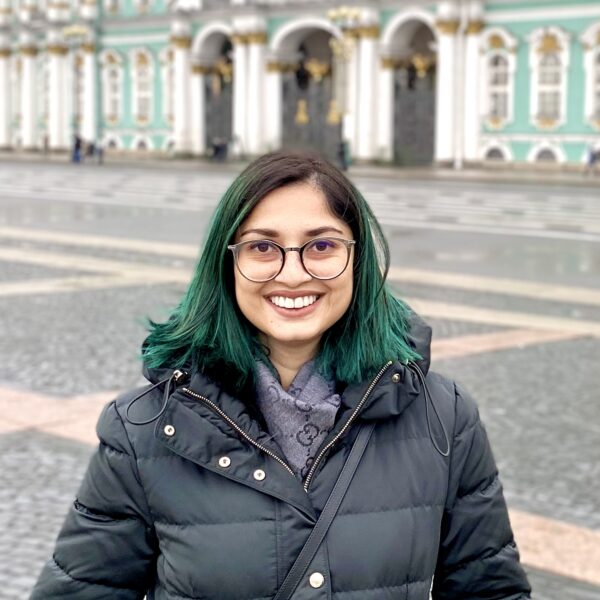At its inaugural Digital Well-being Summit in Johannesburg, TikTok announced its global mental health fund will include Sub-Saharan Africa.

The $2.3 million funding, as well as in-app support for the well-being of its users, will be available to countries like South Africa, Kenya, Ghana, Nigeria, Ethiopia and Zimbabwe.
The expansion for Africa will bring access to local helplines, like the South African Depression and Anxiety Group (SADAG) in South Africa, Mentally Aware Nigeria Initiative and Kenya’s Mental360.
TikTok says these organisations will receive funding and platform support to develop locally relevant, evidence-based content that raises awareness, reduces stigma, and encourages open dialogue around mental health in African communities.
In the coming weeks, TikTok adds that users across Africa will be connected to local helplines that provide expert support when reporting content related to suicide, self-harm, hate, and harassment
“This feature builds on existing capabilities that direct users to mental health resources when they report bullying and harassment further strengthening access to timely and relevant support on the platform,” it says.
Extended partnerships include:
- South Africa: Childline SA
- Kenya: Childline Kenya
- Nigeria: Cece Yara
- Mauritius: Halley Movement
- Tanzania: Tanzania National Child Helpline
- Zambia: Childline Zambia
- Namibia: Childline Namibia
- Malawi: Tithandizane National Helpline Service
Tikok’s Mental Health Education Fund was created in 2023 to create “authoritative, engaging and uplifting mental health content”.
Globally, the Fund has so far helped organisations gain more than 173 million impressions on their content, more than 600,000 new followers for their accounts, prompted more than 200,000 web visits, and helped recruit 486 new volunteers, thanks to a combined $7.3 million in ad credit donations, says the company.
Promote Kindness and in-app features
TikTok used the “Promote Kindness” hashtag at the summit, to empower creators with not just the tools but to treat each other with kindness and respect. To action this, a new comment prompt will now ask users to reconsider posting a comment that may be inappropriate or unkind.
It will also remind users about its Community Guidelines, and lets them edit before sharing.
TikTok says it also does not allow content depicting, promoting, normalising or glorifying activities that could lead to suicide or self-harm, nor does it allow members sharing content taking part in these instances.
If a user searches for certain phrases, like self-harm, it will proactively push localised resources to help provide more information and tips that could address their needs.
The social media platform also shared that users have more control of their scroll, such as guided meditation; smart keyword filters of up to 200 keywords as filter where AI will capture similar words; screen time tools to take breaks; and a Time Away feature for parents to set for teens.
More in our article published recently:
Your TikTok Feed, Your Rules: New Features Put You in Control
Its new meditation feature under Sleep Hours is automatically enabled for users under 18 years old, while anyone older can choose to enable it. It was piloted in March this year but is now available globally.
“People come to TikTok to learn, share their experiences, and connect with communities around the world. That’s why we’re proud to introduce tools that not only support digital wellbeing, but also empower our community, especially young users, with a safe, supportive space to explore and navigate complex emotions,” says Valiant Richey, TikTok Global Head of Trust and Safety Outreach and Partnerships.
TikTok Ambassadors to support wellbeing in Africa
In addition to the funding and in-app tools, and its on-going partnership with the World Health Organisation, TikTok also introduced its new Mental Health Ambassadors at the Johannesburg event.
It includes a diverse group of verified healthcare professionals from the WHO Fides Network:
- Sanam Naran: (South Africa)
- Doctor Siya (South Africa)
- Dr Claire Kinuthia (Kenya)
- Doctor Wales (Nigeria)
Keagile Makgoba, head of communications for Sub-saharan Africa at TikTok says it is trying to fight misinformation and harmful information as much as possible.

“We do that by making sure that we have experts on the platform to give you guys expert opinions and expert advice. So your friends might be great, but your friends are just as delusional,” says Makgoba, before bringing out the four ambassadors from Africa up on stage.
“And this is one of the many ways we show appreciation to our creators. We bring them into the fold, and they get to see amazing experiences.”
Makgoba says users will notice a campaign within the app in the next few weeks focused on mental health awareness, which is part of a global programme but with local faces for Sub-Saharan Africa.
The doctors/ambassadors will share stories and new around mental well-being around different topics.
Nafisa Akabor
Related posts
ABOUT

Recharged is an independent site that focuses on technology, electric vehicles, and the digital life by Nafisa Akabor. Drawing from her 18-year tech journalism career, expect news, reviews, how-tos, comparisons, and practical uses of tech that are easy to digest. info@recharged.co.za





